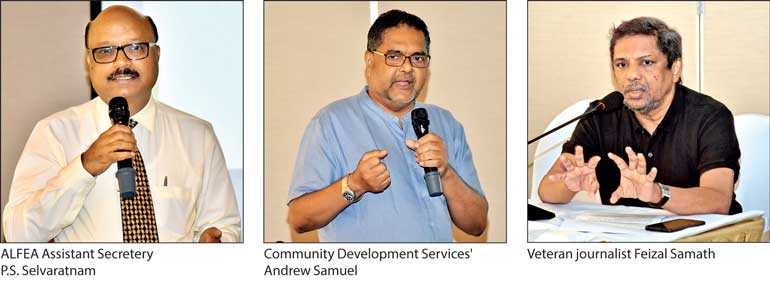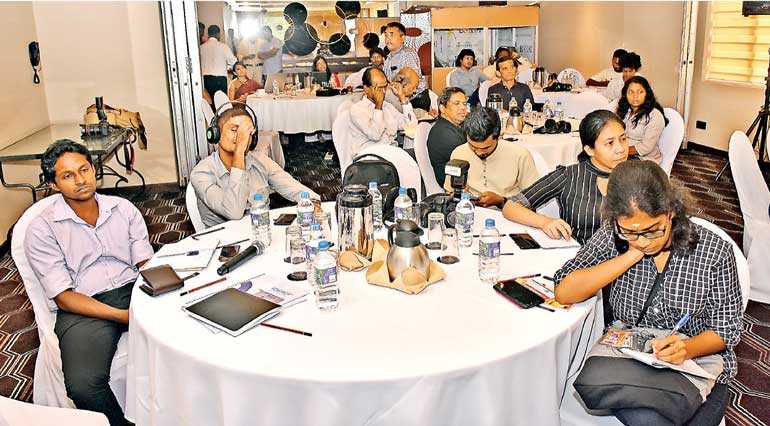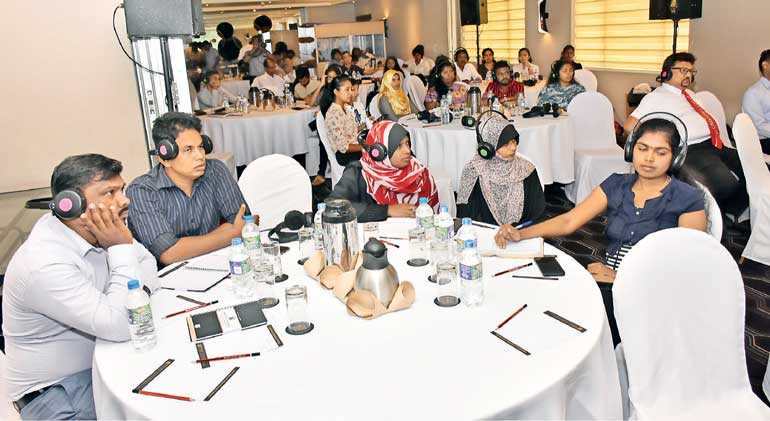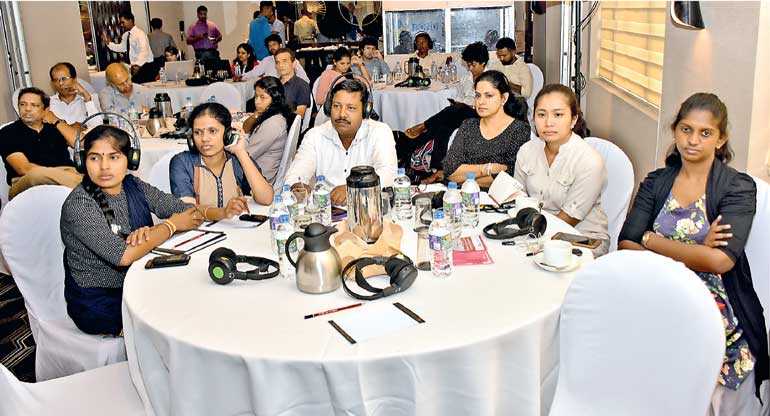Monday Feb 23, 2026
Monday Feb 23, 2026
Wednesday, 5 February 2020 00:25 - - {{hitsCtrl.values.hits}}


A discussion on the role of journalism in advocating safe labour migration was held recently at Renuka City Hotel, with the participation of several national journalists and mobile journalists from the Sri Lanka Development Journalist Forum.
The discussion was facilitated by Community Development Services, Helvetas Sri Lanka, the Sri Lanka Development Journalist Forum and Omnicom Media Group’s OMG Public Relations, with the support of the Swiss Agency for Development and Cooperation.
Commencing the program, Andrew Samuel of Community Development Services introduced the key points discussed at the Global Forum on Migration and Development 2019. This is the only forum which brings together civil society movements and the government and private sector to discuss migration on a global development platform.
The focus this year had been on the Global Compact on Migration (GCM), where nations have a role and responsibility to secure the rights, protection and privileges of migrants and migrant workers.

One of the focus areas that was discussed was the voting rights of migrant workers. There is a workforce amounting to 1.5-1.9 million migrant workers, of which 90% are employed within the Gulf corridor. The remittances acquired from this segment comes to roughly $ 7 billion. This large migrant population is restricted in its voting rights as adequate provisions for it to vote are not in place unless its members return to their country during an election. Most often, work contracts do not allow for this and as a result a large portion of votes go uncast.
The options available to them are to utilise a postal voting system, embassy or consulate office voting, electronic voting or proxy voting, failing which they have to vote in person. It was highlighted that the voting rights of migrant workers needed to receive attention ahead of forthcoming election cycles.
The Association for Licensed Foreign Employment Agencies (ALFEA) attempted to “de-demonise” recruitment agencies and outlined the benefits they delivered migrant workers. It was emphasised that foreign employment played a large role in reducing unemployment, providing migrant labour and generating approximately 15,000 direct and indirect employment opportunities within the country through the many agencies that are in operation.

In response to a question about subagents, fraudulent agents and brokers, ALFEA stated that subsection 3 of Section 54 of the SLBFE Act, which makes it mandatory for all agencies to be ALFEA members, was amended in Section 8 Act No. 56 of 2009 to be optional. Therefore, the association cannot take reactive measures in the event of adverse situations.
Eminent journalist Feizal Samath delved into his decades’ worth of experience in researching and writing on labour migration to underscore limited access to official data as one of the main obstacles journalists face when covering such a social issue. Meanwhile, the International Organization for Migration presented a comprehensive study on human trafficking, explaining the difference between human trafficking and smuggling, and posted the alarming figures of the former in Sri Lanka. Over the past five years, Sri Lanka has been placed in the Tier 2 Watch List of the Trafficking in Persons (TIP) Report in 2015, 2016, 2019 with 66 referrals or identifications of potential victims by State authorities last year.
The final session was hosted by the Sri Lanka Development Journalist Forum, which trains journalists operating at the grassroots level to acquire and document real-life stories of labour migration, primarily using mobile journalism. The discussion created a platform for journalists at the national level to connect with these journalists working on the ground, where they could acquire verified information and be instrumental in transmitting that news to a wider audience.
Pix by Indraratna Balasuriya